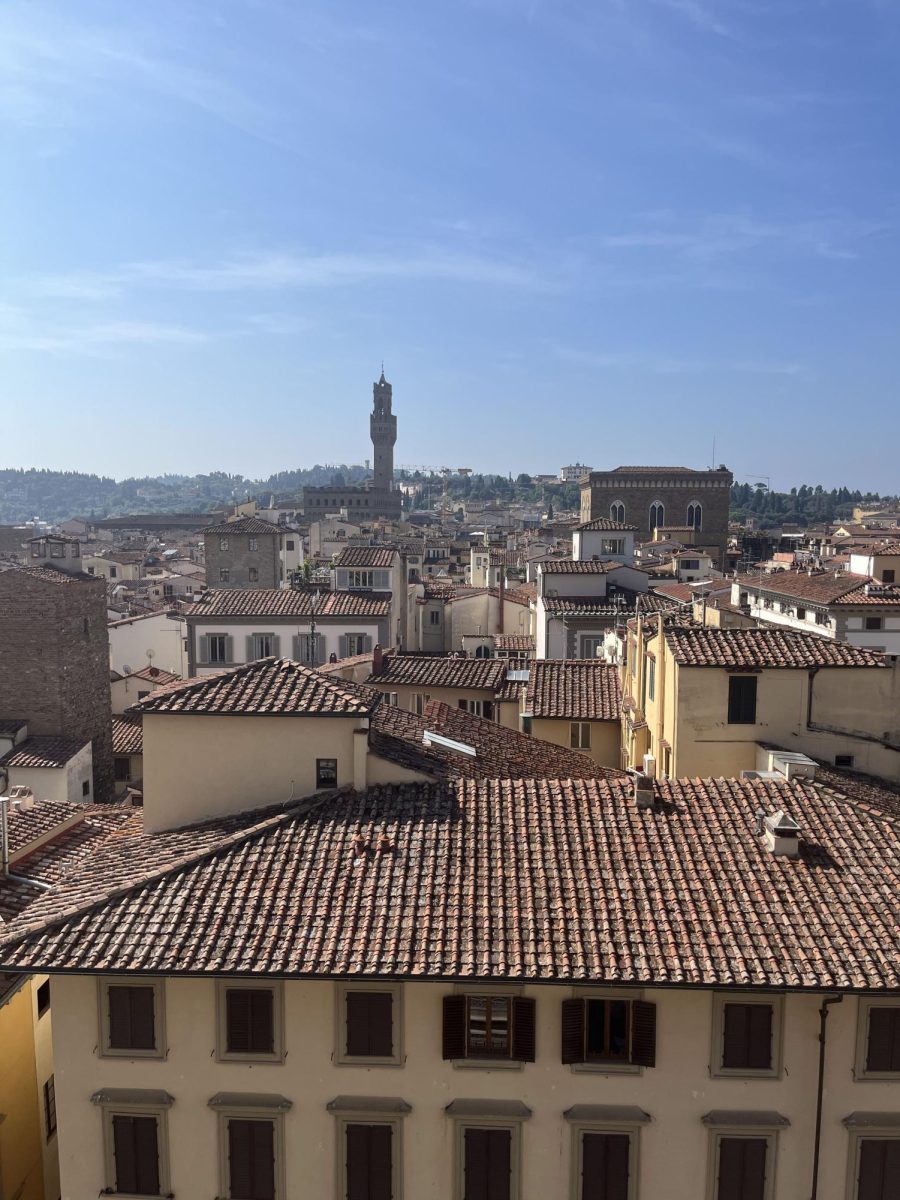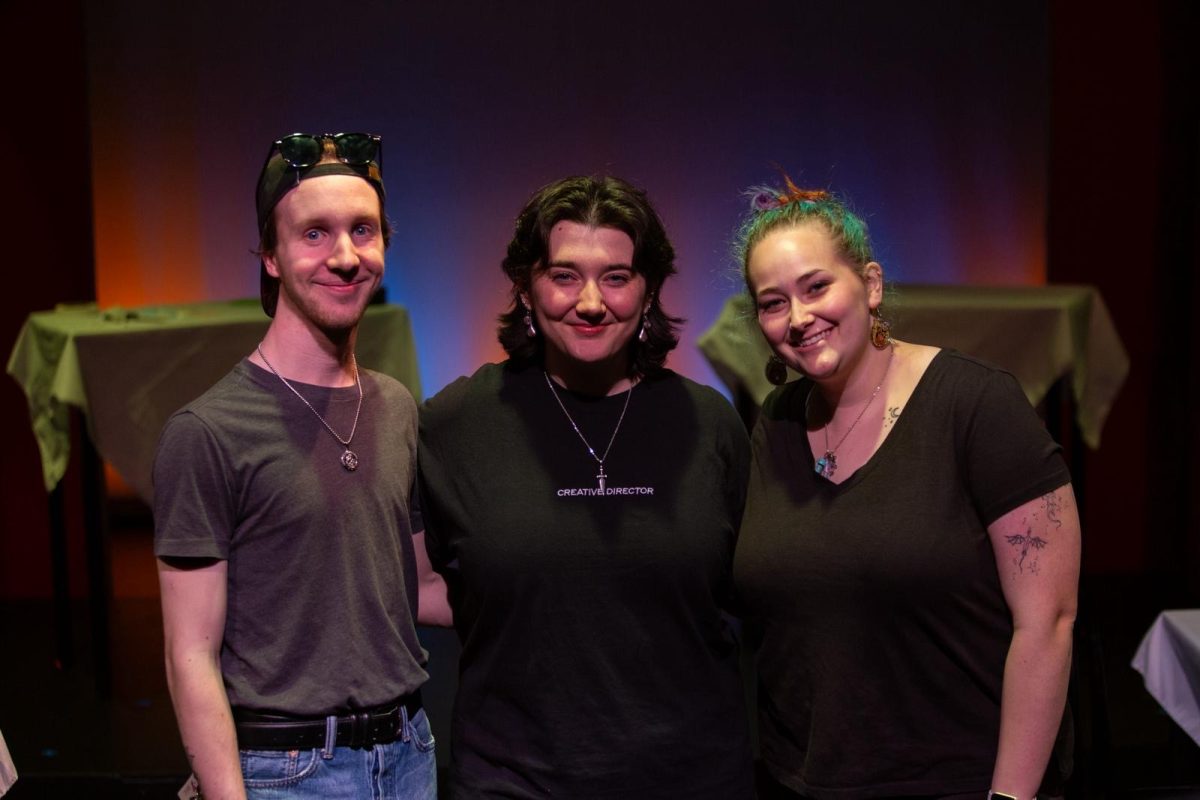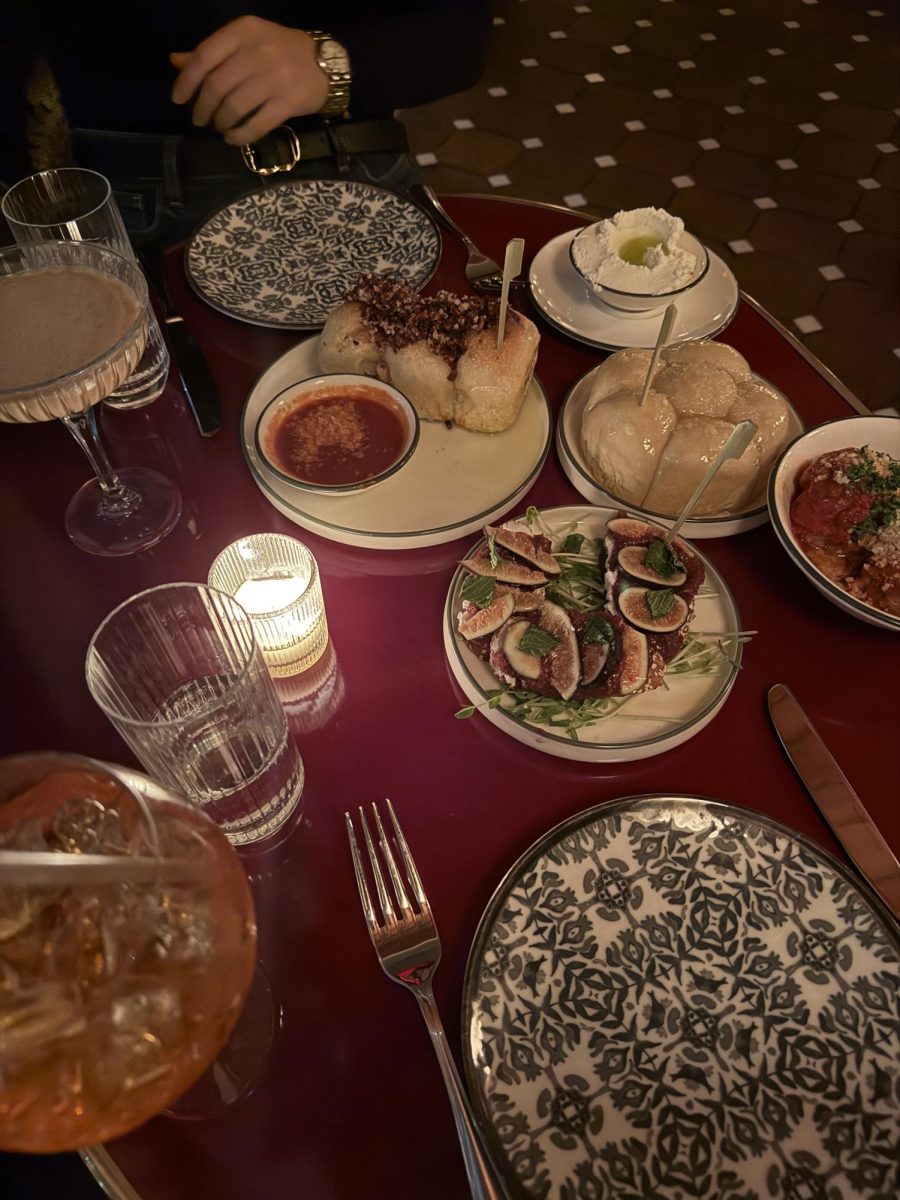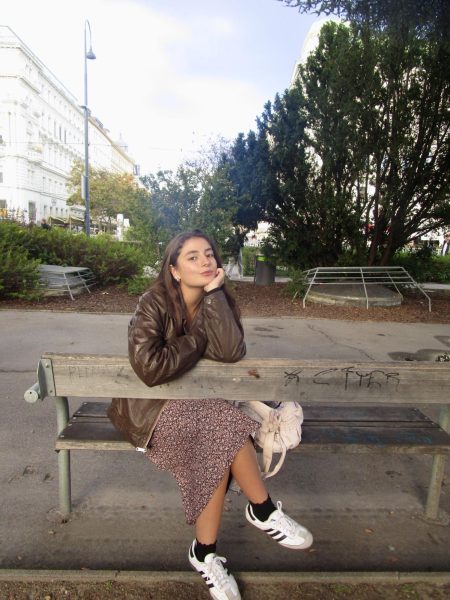As a student who had never experienced life as a tourist before, moving from Boston to Florence was a huge wake up call to the complexities of hyper-tourism, a reality that reshaped my interpretation of travel.
At first, it was overwhelming, especially during the peak tourist season in late summer, when the narrow, beautiful streets of Florence were crowded with visitors at every turn. Every time I stepped out of my apartment onto Via Sant’Antonino, just 300 feet from the famous leather market, I was greeted by hordes of English-speaking tourists.
It wasn’t exactly the quiet, romantic atmosphere of Florence that I had imagined. I had been picturing a semester where I could eventually blend in with my neighbors, maybe even befriend them. But instead, I found myself feeling like an outsider in a city that has become more defined by visitors than by its own residents. The sad truth: tourists are starting to kick out the locals.
Florence has a population of about 367,150, and around 5% of that is made up of just study-abroad students. Meanwhile, the city is home to 12,246 Airbnbs which is one of the major contributors to the rise of hyper-tourism in the city. Visitors can pay around €200 per night to stay in what’s marketed as an “authentic” apartment or villa in the heart of Florence. Even the G7 Ministers recently visited Florence in November to address the issues of tourism, with the hope of making plans for sustainable tourism.
Florence itself is one of the most visited cities in the world which will never change. After all, it is considered the birthplace of the Renaissance and is home to 60% of the world’s most renowned artworks. Of course millions of people every year are going to fly to Florence just to see the Arno or “The Birth of Venus.” Unfortunately with this, historic neighborhoods, home to locals, are increasingly dominated by hotels or random souvenir shops, all catering to the constant flood of visitors.
While tourism brings some economic benefits, it has also harmed the city’s original character, leaving many residents feeling marginalized in their own hometown. The fear is that gentrification will turn Florence from a vibrant, living community into just another global commodity, losing the personality that makes it special.
There is no city without its community and its people. The culture of a city like Florence is deeply rooted in the lives of its residents. Without locals to practice and pass on their traditions, the city’s culture becomes disconnected. Tourists come to Florence seeking the “real” Florentine experience, but as many families have moved out of the city center, we can’t help but worry: will Florence still be as genuine without them?
I went into traveling with barely any guidance. If I had known about this level of tourism before choosing Florence, would I have made a different decision? I hope not. But it’s something I feel more students should be aware of when considering their study abroad destinations. I chose Florence to connect with my heritage, to explore the country I had dreamed of visiting since childhood, and to learn and grow. The number of people on the streets could never ruin that dream for me. At the end of the day, tourism will always be inevitable, and those who have the privilege to travel should go and seek those life-changing experiences.
With the evolving nature of travel and technology in recent years, it has become obvious that for some people visiting a location is less about the meaningful cultural experience but more about the consumer-driven activity. I’ve noticed in Florence and in other major cities how the crowds create an environment where the focus seems less on understanding the significance of the landmarks and culture and more on checking them off a list. I did not want to be that person when traveling.
Traveling used to be about the journey itself. Historically, travel had a deeper spiritual and cultural significance in various traditions, such as the Islamic pilgrimage of Hajj, where the journey serves as a means of personal and spiritual growth. I don’t think the original artists and scholars of the Grand Tour who came to Italy were focused on the long weeks of travel, but rather on the journey itself and their engagement with the communities they studied. These are the kinds of discussions I’ve had in my classes here, and they’ve been some of the most fulfilling topics I’ve had the pleasure of learning.
Today, that sense of self-discovery and adventure has been replaced by cheap flights, long lines, and frustrating security checks. This experience has become less enjoyable than what I can assume it used to be like. There is a clash between slow, thoughtful engagement with a place versus the desire for fast, easy, and shallow travel experiences that we can brag to our friends and family about back home.
Throughout the semester, there was a constant sense of pressure between wanting to immerse myself in a city’s culture, history and daily life, and the desire to see as many European cities as possible because, after all, you only study abroad once. The flight deals and budget-friendly Ryanair trips available to us encouraged the idea of hopping from one city to another, trying to squeeze in as much as possible in a three-day weekend.
During my first month in Florence, I realized I was not only neglecting my beautiful new home, but I was also falling into the trap of becoming a stereotypical tourist—the only thing I had hoped to avoid. It’s hard not to get sucked into the performative lifestyle, especially with social media having a huge presence on travel. Was I taking pictures of everything for myself or for Instagram? Was I visiting cities because I really wanted to, or simply because they were convenient and everyone else went? It quickly became exhausting to maintain that sterile travel lifestyle.
Even when my family visited for just a week, they wanted to avoid the typical tourist traps and not be the obvious Americans, relying on me to show them the “hidden gems” of the city. My sister had even told me she preferred to go off on her own, admitting that she was skeptical of the things advertised and found it hard to enjoy crowded, commercialized areas. I started to question when tourism became something to feel ashamed of. How can we change this negative narrative by fixing the way we treat the places we visit?
Sustainable tourism is about exploring the world responsibly while helping to protect the environment. It can be as simple as choosing not to buy mass-produced souvenirs and saving receipts from local cafes you visit instead. Actively practicing the language or using local guides for excursions and thoroughly researching the places you plan to visit. To live globally and think locally is the action of understanding and protecting the local cultures, communities and environments we visit. It’s important to preserve not just the ancient landmarks, but also the cultures and communities that make each destination unique.
I found that my most fulfilling experiences came from visiting smaller towns in Italy, like Borgo San Lorenzo, rather than the more popular destinations like Rome or Venice, even though those cities are beautiful in their own right. My friends and I searched for less “touristy” excursions, planning everything ourselves. This not only saved us money but also gave us the freedom to explore places we might never have discovered otherwise. Of course, I still wanted to see some of the most iconic sites, but not for Instagram—rather, to genuinely experience them on my own terms.
In Florence, I found that there’s a discrepancy between the crowded city center where I live and areas just a mile outside, like Santo Spirito or the northern parts of San Lorenzo and San Marco, where you can still find the quiet, romantic atmosphere that Italy is known for. It can be hard to escape the bubble you make for yourself when you are in an unfamiliar place, but simply looking past the Duomo or Santa Croce, I have found so many more adventures that made my time here better.
At the end of the day, to truly experience the “Florentine lifestyle” or to step outside the tourist bubble, you have to seek it out for yourself. When it comes to meeting locals, don’t expect them to be fascinated by you simply because you’re a foreigner. One of my favorite memories from this semester was meeting a woman at a cocktail bar and inviting her to join us on the dance floor. My friend and I could tell she wanted to dance, so we asked her to. We ended up talking about our favorite artists and Italian poets all night, and she later invited us to see her perform in her one-woman play in Soffiano (which she absolutely nailed—love you, Angela!).
I may not have traveled every weekend or visited as many cities as I originally planned, and there were even days when I just stayed in bed. But I’ve learned to remind myself that my journey will unfold as it’s meant to. It’s much easier to be a traveler than a tourist, and keeping an open mind in every place you’re fortunate enough to visit leads to a deeper, more meaningful connection.
So does travel really broaden the mind still? Yes, if you do it right.









